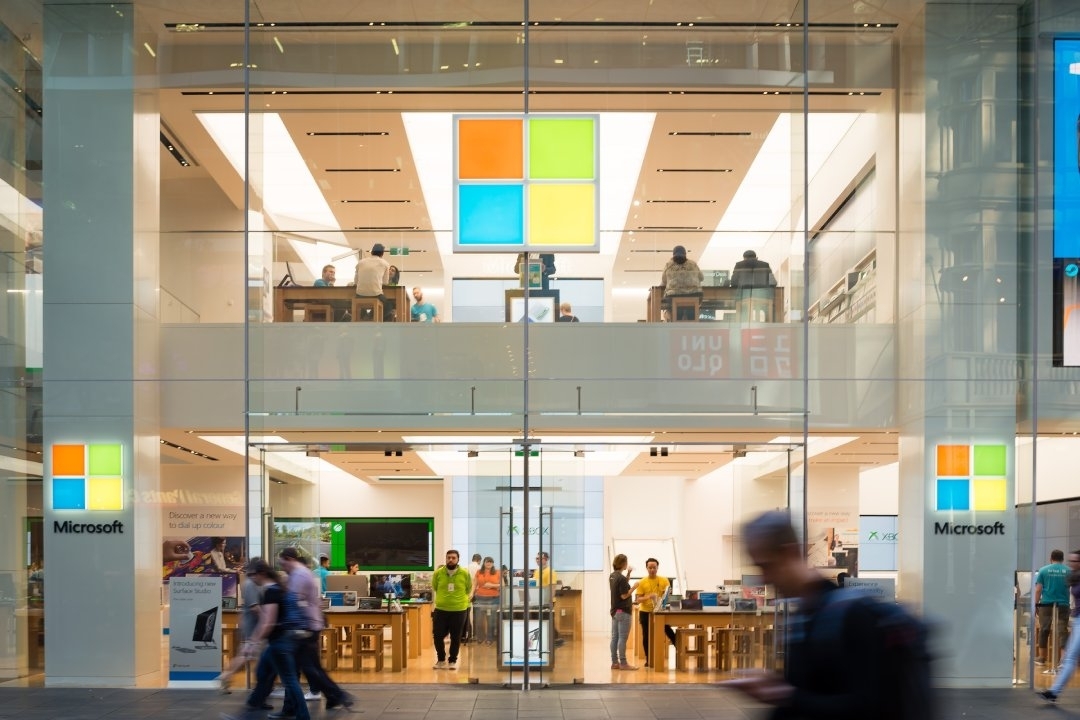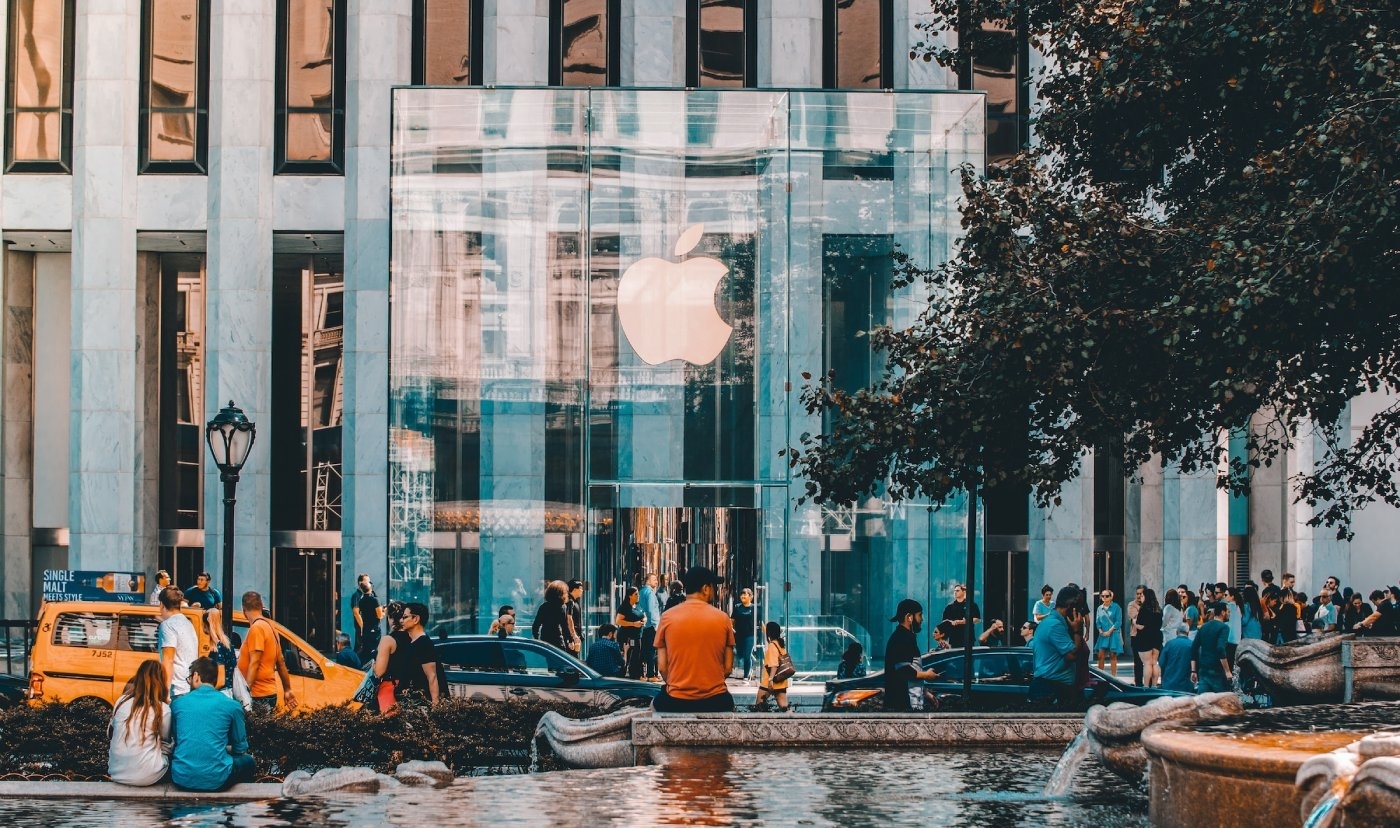
How to buy Microsoft (MSFT) shares in Australia
One of the biggest tech companies on earth, Microsoft, has rewarded its investors with impressive returns. Learn more about the company and how to buy Microsoft shares in Australia.
This article focuses on how to buy specific securities, however, it is not a recommendation to invest in them and should not be taken as financial advice. Do your own research and make your own decisions, or even consider getting advice from a licensed financial adviser before investing.
A global technology leader, Microsoft Corporation offers a diverse range of software, hardware, and cloud-based solutions that empower individuals and businesses worldwide. With iconic products like Windows, Microsoft Office, and Azure, Microsoft has revolutionised how we use technology, enabling seamless productivity, innovative development, and reliable cloud services.
How to buy Microsoft shares
Want to start buying MSFT shares but not sure how? Learn how to buy Microsoft stock on the Stake stock investing platform below.
1. Find a stock investing platform
To buy U.S.-listed companies, you'll need to sign up to an investing platform with access to the U.S. stock market. There are a number of share trading platforms in Australia, of which Stake is one.
2. Fund your account
Complete an application with your personal and financial details. Fund your account with a bank transfer, debit card or even Apple/Google Pay.
3. Search for Microsoft or MSFT
Find the share by name or ticker symbol: MSFT. Do your own research to ensure it is the right investment product for your own circumstances.
4. Choose an order type and buy MSFT shares
Buy on any trading day with a market order or use a limit order to delay your purchase of MSFT shares until it reaches your desired stock price. Look into dollar cost averaging to spread out your risk, which smooths out buying at consistent intervals.
5. Monitor your investment
Optimise your portfolio by tracking how your stock and the business perform with an eye on the long term. You may be eligible for dividends and shareholder voting rights that affect your stock.
✅ Gain access to shares like Microsoft, Apple and more when you sign up to Stake.
Microsoft Corporation overview
Microsoft Corporation is an American multinational technology company headquartered in Redmond, Washington. Founded by Bill Gates and Paul Allen in 1975, Microsoft has grown to become one of the world's leading technology companies, offering a wide range of software, hardware, and cloud-based services.
The tech giant is best known for its flagship products such as the Windows operating system, Microsoft Office suite, and the Azure cloud platform. Windows is a widely used operating system that powers millions of devices, from personal computers to servers. The Office suite, including applications like Word, Excel, and PowerPoint, has become a standard in many industries and households.
Other products include the Dynamics 365 suite, which provides comprehensive solutions for customer relationship management (CRM) and enterprise resource planning (ERP). These solutions help businesses streamline their operations, enhance customer engagement, and gain valuable insights through data analysis. With a focus on empowering organisations of all sizes, Microsoft has become a trusted partner for businesses across various industries, supporting their digital transformation journeys.
In recent years, Microsoft Corporation has made significant investments in cloud computing with its Azure platform. Azure provides a comprehensive suite of cloud services, including its enterprise services, infrastructure as a service (IaaS), platform as a service (PaaS), and software as a service (SaaS) offerings. Azure has gained popularity among businesses and developers for its scalability, reliability, and extensive range of services.
Microsoft is much more than just Windows
Microsoft has also recently placed a strong emphasis on fostering innovation and collaboration in the developer community. The company offers a wide range of developer tools and resources, including Visual Studio, an integrated development environment (IDE) and GitHub, the popular code repository platform. Microsoft's commitment to open-source software has also been evident through its contributions to numerous open-source projects, fostering a culture of collaboration and driving advancements in software development.
Aside from its software offerings, Microsoft has also expanded its presence in the hardware market. The company develops, manufactures and sells products such as the Surface line of tablets and laptops, the Xbox gaming console, and accessories like keyboards and mice.
Furthermore, Microsoft has been actively involved in the field of artificial intelligence (AI) and research. It has developed AI-powered services computer software and tools, including Azure AI, cognitive and intelligent cloud services, and conversational AI platforms. Microsoft also announced a long-term partnership with OpenAI, stating "a multiyear, multibillion dollar investment to accelerate AI breakthroughs to ensure these benefits are broadly shared with the world."
Microsoft has consistently been one of the most valuable publicly traded companies, with a significant market capitalisation. Its success can be attributed to its ability to innovate, adapt to changing technology trends, and deliver products and services that meet the evolving needs of its customers.
For more information on Microsoft, check out the Under the Spotlight: Microsoft.

Microsoft share performance
Microsoft Corporation is one of the most valuable publicly traded companies globally, and its stock market cap has experienced significant growth in recent years. The company's stock is listed on the Nasdaq Stock Market under the ticker symbol "MSFT" and has returned over 23,000% to its investors since its IPO in 1986.
In the past decade, Microsoft's share price has seen substantial increases. The company has benefited from its successful transition to a cloud-first strategy, with its Azure cloud platform becoming a major revenue driver. Additionally, the consistent performance of its flagship products like Windows and Office, along with expansion into new areas such as gaming with the Xbox, have contributed to the company's overall growth.
💡Related: Top 10 ESG Stocks to Watch→
Microsoft stock P/E ratio
As of 10 May 2023, Microsoft's stock P/E ratio is around 33.40. The price-to-earnings ratio is constantly changing, as the share market price varies every day and new earnings reports come out every quarter. Historically, Microsoft's stock price to earnings has been higher than its peers as the firm has consistently delivered great revenue growth and offered substantial returns to its investors, which are willing to pay a higher price for its shares.
Microsoft EBITDA
Microsoft's Earnings Before Interest, Taxes, Depreciation and Amortisation have been growing considerably, totalling US$97.89b in 2022, a growth of +21% year-on-year.
Do Microsoft shares pay dividends?
Yes, Microsoft Corporation pays dividends to its shareholders. Microsoft has a long-standing history of returning value to its investors through dividend payments. The company typically declares and pays dividends on a quarterly basis. Its last announced dividend was of US$0.68 and its current dividend yield is 0.87%.
Has Microsoft ever had a stock split?
Yes, Microsoft has had nine stock splits since it was listed in 1986. Here's the complete list of Microsoft stock splits:
- 21 September 1987: 2:1 Stock Split
- 16 April 1990: 2:1 Stock Split
- 27 June 1991: 1.5:1 Stock Split
- 15 June 1992: 1.5:1 Stock Split
- 23 May 1994: 2:1 Stock Split
- 9 December 1996: 2:1 Stock Split
- 23 February 1998: 2:1 Stock Split
- 29 March 1999: 2:1 Stock Split
- 18 February 2003: 2:1 Stock Split
These stock splits increased the number of outstanding shares while proportionally reducing the share price, aiming to make Microsoft's shares more accessible and affordable to a wider range of investors. Each split allowed existing shareholders to receive additional shares without requiring additional investment.
Which ETFs have exposure to Microsoft?
Here are some of the biggest U.S. and ASX-listed ETFs that have exposure to Microsoft:
U.S.-listed ETFs | ASX-listed ETFs |
|---|---|
Invesco QQQ Trust ($QQQ): QQQ is one of the most popular and widely traded ETFs that tracks the performance of the Nasdaq-100 Index. Microsoft is one of the largest components of this index, and therefore, QQQ provides exposure to Microsoft along with other leading technology companies. | BetaShares NASDAQ 100 ETF ($NDQ): NDQ is an ETF listed on the Australian Securities Exchange (ASX) that aims to track the performance of the NASDAQ-100 Index. Since Microsoft is one of the largest constituents of the NASDAQ-100 Index, NDQ provides exposure to Microsoft along with other major U.S. technology companies. |
SPDR S&P 500 ETF Trust ($SPY): SPY is an ETF that aims to track the performance of the S&P 500 Index, which represents a broad range of large-cap U.S. companies. Microsoft is one of the largest holdings in the S&P 500 Index, and thus, SPY offers exposure to Microsoft along with other prominent companies across various sectors. | iShares S&P 500 ETF ($IVV): IVV is an ETF that seeks to track the performance of the S&P 500 Index, which represents a broad range of large-cap U.S. companies. As Microsoft is a significant component of the S&P 500 Index, IVV offers exposure to Microsoft alongside other leading companies across various sectors. |
Vanguard Information Technology ETF ($VGT): VGT is an ETF that seeks to track the performance of the MSCI US Investable Market Information Technology 25/50 Index. Microsoft is a significant holding in this index, and as a result, VGT provides exposure to Microsoft as well as other companies in the U.S. information technology sector. | Vanguard MSCI Index International Shares ETF ($VGS): VGS is an ETF designed to track the performance of the MSCI World ex-Australia Index. This index includes companies from developed markets worldwide, and Microsoft is one of the major holdings within this index. Therefore, VGS provides exposure to Microsoft along with other global companies. |
💡Find out more: Decide which is the best Nasdaq ETF to invest in→
Microsoft Corporation FAQs
How many Microsoft shares does Bill Gates own?
Since he stepped down from the company board in 2020, Bill Gates is no longer required to publicly disclose the number of shares of the company he holds. It is estimated that he still owns over 1% of Microsoft, totalling over 74m shares, worth over US$23b.
How much does it cost to buy a Microsoft share?
One Microsoft share was worth US$312.31 as of 10 May 2023, but some platforms make it possible to trade fractional shares. This means you can buy and sell shares for a portion of one share, for example, you could become a Microsoft shareholder by investing as little as US$10 in the stock on Stake Wall St.
How many shares of MSFT stock are there?
As of 10 May 2023, there are 7.44 billion shares outstanding of MSFT. Please note that this number may change due to various corporate actions, such as stock splits, share buybacks, and new issuances.

Megan is a markets analyst at Stake, with 7 years of experience in the world of investing and a Master’s degree in Business and Economics from The University of Sydney Business School. Megan has extensive knowledge of the UK markets, working as an analyst at ARCH Emerging Markets - a UK investment advisory platform focused on private equity. Previously she also worked as an analyst at Australian robo advisor Stockspot, where she researched ASX listed equities and helped construct the company's portfolios.

